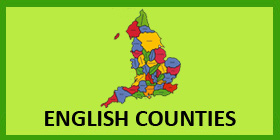




Back to the archives home page

April 2020
LEARNING AT HOME - Temporarily or Permanently.
I decided to write this little piece for parents after I received three emails in the
last two weeks asking how did I manage to home school my children successfully. The title, across the top of this
page, was very carefully chosen because I think it is a big mistake to refer to the current situation where
children are having to remain at home to learn, as home schooling. The word school, as a noun, denotes
an institution, a building, where formal, structured learning takes place under the control of a qualified teacher.
An individual pupil is in the company of many others of the same age, usually, and, when not in lessons, they have
the company of these others either at break time or lunch time. Using the word in the phrase "home schooling"
brings with it thoughts of that institution. But this can not be re-created within the home environment while social
distancing. What is going on now is not home schooling even if teachers are providing schemes of work.
The situation in which these "lessons" are done, if they are done, is different for each and every pupil.
Pupils cannot see others working at the same time and they have no social interaction either.
Home educating would be a better description but again there are three main types of education;
formal, non-formal and informal and only the last happens outside of some institution.
I do have a certain amount of experience of learning outside of a school, institutional environment.
During my very first journey around the British coastline, see the background section of this site, my two children
continued their learning but did not follow any specific curriculum. At the end of the year
long trip they returned to full time formal education none the worse for their year travelling and with far more
knowledge about their country and its environs than their peers.
After my second trip, followed by the pupils at 50 selected primary schools, I had to make a decision
about the education of my then youngest child. He was four and had a speech problem, later identified as speech
dyspraxia. In his case this meant he had great difficulty making the correct movements which are
used in the production of the spoken language. The exact cause of dyspraxia is unknown but it seems to be that
messages from the brain are not correctly transmitted to parts of the body, in the case of speech dyspraxia to the
tongue and mouth, to form recognised sounds. It would appear to be similar to the experiences of some stroke victims.
In simple terms, he couldn't speak properly. Immediately prior to the time before he was due to start
school he was the victim of some ridiculing by children in our neighbourhood. I made the decision that, for a time,
I would teach him at home while he underwent fairly rigorous speech therapy. As a writer I was lucky enough to be
able to spend 100% of my time with him during this process which eventually lasted for over five years. He then went
into a local primary school, within eight months passed his 11+ and now, some eighteen years later, has a Masters degree
in Law and History, has been called to the bar in New Zealand where he now lives and is a published short story writer.
He also has an immense love of history.
It was impossible, in his formative years, to teach him to read or write, he first needed to be able
to pronounce words, and so, in the home environment, we worked on things he could do and made them fun. Talking history,
or listening to me talk history and read to him, was easy, Giving him relevant maths to do was another simple task and
he acted as my "calculator" for my end of year accounts, adding up all figures in his head. Maths was easy for him.
Much of the material we learned from came from the newsletters I had produced for those schools who followed my second journey.
What I am trying to say here, to all you parents struggling with lesson plans, work schemes and projects
set by teachers, is that if that is not working then introduce your own learning plans but make them fun. Simply
helping you cook can use reading skills, for the recipe, maths skills for the ingredients, and awareness of time, for
cooking time as well as the discipline of having to think, work out and remember.
If teachers didn't need to be qualified then maybe you could do their job. But they do and even teaching
assistants do their jobs under the control of
a qualified teacher. As a parent you are not qualified, in fact there isn't even a qualification to be a parent but
you have done that job for some time. You know your child. Help them to learn. Encourage them to learn. Praise them for
learning but, if it doesn't work, don't try to enforce a rigid structure within a place they have known for so long as
their home. You will kill off, almost certainly, their desire to learn. Try to stimulate their inquisitiveness. Home
is a fun place and the majority of learning done there should be fun too. Of course you should try to follow some of
the lesson plans given out but, in all honesty, if you can't the failing is not yours but the qualified people who
are providing these plans.
Once everyone returns to school it is the job of these qualified people to reassemble their pupils and
return to the structured learning. I see it as being a little bit like a sheep dog trial. The pupils, your children,
are the sheep and have all run off all over the place, the teacher will have to round them up and organise them in to
some kind of order again. Your job, while the sheep are running around, is to make sure that running is fun, that they
continue to learn in some way, but most importantly they do not get stressed in any way at all. If that happens you could
be said to be gambling with their future and I make no apology for the sheep pun.
And of course I too would be failing if I did not say that this website could be of some use to you in
achieving those aims. Check out the ideas we have given for using it and, even when your children return to school,
which as I write this would seem to be many weeks away, we will have some fun and constantly changing learning material on
here for years to come.
![]()

